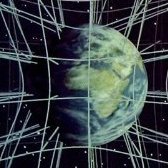Leaderboard
Popular Content
Showing content with the highest reputation on 08/05/20 in all areas
-
That's word salad. Science - physics especially - quantifies effects. It's not enough to spout some technical jargon. One needs a mathematical model that predicts behavior. Any notion that gravity can be replaced by electrostatics is trivially debunked, because there's no way to get an always-attractive force between more than two bodies. We orbit the sun, sure, but the moon orbits us while orbiting the sun. Pick a charge for the sun and the earth, and from the known orbits, mathematically deduce the charge on the moon that consistent with the known orbits, the tides we observe on the earth, etc. The effort will fail once it's approached with a bit of rigor.2 points
-
In 1933, one man set fire to a building in Germany and Hitler claimed it was the result of communist agitators and he won his election the following week. It became known as the Reichstag Fire and was used as a pretext to pass laws which took away people’s freedoms and to crack down on anyone not completely supportive of the government. This spring, white nationalists broke windows and vandalized buildings and businesses to make it look like BLM protests were out of control and that rioting was out of hand. It’s known as a false flag operation and it worked. This was used as justification to send in federal agents to US cities... agents with no identification or badges (what some called secret police) who without warrants picked up citizens from the streets who weren’t breaking any laws and took them away in unmarked vans with no due process. Now, Trump claims voting fraud is rampant with mail in voting, a process which is gaining traction this year to drive turnout safely during a global pandemic. People don’t want to stand in lines for hours and touch dirty screens that pass covid to the masses, but mail in voting causes turnout to surge and high turnout tends to mean far fewer republican victories. There is no evidence mail in voting is any more fraudulent than in-person voting, nor that absentee voting is in any relevant way different from mail-in voting (a distinction without a difference that Trump lees making). Who wants to bet that Trumps henchmen purposefully seed the mail with fake ballots in a few months precisely in a way that they get caught and publicized? The obvious motivation is another false flag operation / Reichstag fire to manipulate people into supporting their own objectives and all just so they can use those planted fake ballots to point to news stories about fraudulent voting activity? I mean, he’s already defunding the post office and closing locations in key voting districts to slow them down on the system side, even placing his own unqualified campaign donor like a puppet to be in charge of the post office and do his bidding. Maybe I’m wrong, but you wouldn’t exactly be surprised if evidence came out showing this happening in couple of months, would you?2 points
-
The bicycle rider has to measure the speed of light as being c, relative to himself, regardless of what direction he is traveling. So let's say, that when he is ( by his measure) 1 light hr from a source that he has been moving away from at 0.5 c. That means that the light reaching him from that source at that moment had to leave the source when they were closer together, when they were only 2/3 of a light hour apart. Thus it took the light just 2/3 of a hour to reach him, during which time the source traveled 1/3 of a light hour. to a distance of 1 light hour. Further assume that that light carried an image of a clock at the source reading 12:00. Since he knows that 2/3 of any hr passed since that image left, and that due to time dilation, The source clock runs 0.886 times as fast as his own, the source clock should read between 12:34 and 12:35, at the moment he sees this light. Now let's say that he is moving towards the source at 0.5c, when he sees the light while still 1 light from the source. Now he has to conclude that the source was further than 1 light hr away when the light left ( 2 light hrs away). He still has to measure the light as traveling at c relative to himself, So, by his clock it took 2 hrs for the light to reach him, during which time he and the source closed to a distance of 1 light hr. He sees the same image of 12:00 for the source clock*, But he now it has been two hrs since that image left the source, during which time the source clock advanced to read 13:44, which is the time on the source clock when he sees the image This is quite a bit later than what he concluded when he was moving away from the clock. So before the bicycle reverses direction, he would say that is 12:34 on the source clock, and afterwards he would say that it reads 13:44 ( even though the image he sees for the source clock remains 12:00) For this we assume an instantaneous change in velocity, which can't actually happen. The bicycle has to spent some non-zero time accelerating, during which period it is non-inertial. It is a bit more complicated to work out what someone concludes when working from a non-inertial frame. For one thing, it is only the Local proper speed of light that is measured as being c. The "coordinate" speed of light changes with distance from the observer. So said observer cannot conclude that the light traveling from the source traveled at c relative to him for the entire trip. The upshot is that for this accelerating observer, clocks in the direction of the acceleration, run fast by a rate that depends on the magnitude of the acceleration and the distance to the clock. This leads our bike rider to conclude that while he decelerates to a stop and then accelerates back up to speed back towards the source, the source clock runs very fast and ticks off the time between 12:34-12:35 and 13:44, over a very short period by the bike rider's clock. * If it helps, assume two bicycles, one moving towards and one moving away from the source and passing each other when they are 1 light year away from the source. They both need to see the same image of the source at that moment.2 points
-
The green ones are correct(ish) for the German and Swedish (the root is, presumably, something like and[e]r-) but that has no connection to the Romance/English words. There the analysis should be di(s) + ferre (to carry) + an ending that indicates a noun derived from the verb (gerund maybe? my Latin knowledge is approximately zero). Change and cambio are related and from Latin. But Latin got it from Celtic.1 point
-
I was being facetious, Studiot. I do admit that when I first brought up the subject ( Jul 28 ), I was possibly over emphasizing the 'observer', while I should have placed more emphasis on the fact that the ( spatial-temporal ) observer is the source of the word, and definition, of 'change'. The fact that time has such a large and profound effect on our consciousness, and very existence, is the reason the concept of time is ingrained in our language. It makes discussing the absence of time a little difficult.1 point
-
A further example, The measurement of goods for sale varies, apples by weight, milk by volume but now the the measurement of apples has changed to number (a pack of six).1 point
-
True. I think the OP made a mistake framing their question around crime. I think what they were trying to ask is more centered around which behaviors are beyond vs within our control. I may be able to control whether or not I initiate the use of alcohol but my genetics will possibly determine addiction.1 point
-
Thats interesting, Swedish has Ändring and Förändring. They seems closely related to your german examples but in Swedish both AFAIK contains the meaning "a change over time". The difference between Ändring and Förändring is that Ändring describes and active process with a subject. Example: "The scientist did a modification; the sample was changed before the test. Th scientist did grind the sample to powder." "Förändring" is passive: "The sample changed during the test. It decayed and became powder." The difference seems to be that in Swedish something having different attributes as a comparative relationship implies "before" and "after" and German does not. (I also note some interesting things regarding the DVD example you posted, I'll try to post something on that.)1 point
-
But you don't create just protons or just antiprotons without violating conservation laws or symmetry. You create both at the same time. That's not the case with an amino acid. You can build just one without such violations.1 point
-
You couldn't be be more wrong if your name were Wrongy McWrongface and you posted this in the wrong forum on the wrongest day of the year after passing the text through an electric wrongifier.1 point
-
However, as long as one recognises this from the outset then the attempt to reason them out of their position can be an effective means of enhancing ones own undestanding of the topic and may serve to prevent other readers from being misled by the, often superficially attractive, nonsense being spouted by the crank.1 point
-
Well, in the very first place, the sentence you quoted is completely meaningless word salad - it's a bunch of scientific-sounding terms jumbled up into something resembling a sentence, and is devoid of any meaning. So there isn't actually anything there to be responded to. Don't worry about that, because there's nothing there to be understood - the whole thing is completely devoid of any meaning. The one thing you may be able to respond to is the idea that gravity is somehow electromagnetic in nature, which is an old chestnut amongst the crank community, and occasionally resurfaces on various forums. You could suggest the proponent to step into a large enough Faraday cage, which blocks out EM radiation; by their own claims, they should then be weightless. Evidently this is not what happens. Do remember though that ultimately any discussion with adherents of pseudoscience and crackpottery is a waste of time, you aren't going to get anywhere. You simply can't reason someone out of a position that hasn't been arrived at by way of reason in the first place.1 point
-
The BU concept is kind of related to this, but I am going a step further by saying that information itself requires neither space nor time - these concepts arise only at the point where one attributes context to that information, which requires the imposition of a structure, which generally will be a spatiotemporal embedding. But I say this is an extraneous thing, and not inherent in the information itself. Ok, I haven't actually taken it that far For me, a Hausdorff space simply seems a natural way to think of a complex network such as the brain. Another option would be to think of it as a tensor network that maps inputs (sense data) into outputs (brain states? specific behaviours?). Whether or not spacetime itself can be modelled as some kind of Hausdorff space is another matter, albeit an interesting one. It reminds me of a model called Causal Dynamical Triangulations - one result of this model is that, while spacetime has the usual (3+1) dimensions on large scales, it reduces to just 2D with a fractal geometry on small scales. I don't know too much about this model, but it's an interesting concept. Fair enough, but I'd put it the other way around - 'to vary' inevitably implies a process (and thus time) to me, whereas 'change' does not. But that's just convention Exactly - information vs the embedding of it.1 point
-
1 point
-
You did not make an attempt to define crime. What is or is not a crime varies by locality. That said there are studies that look at the impact exposure to violence (many forms of violence are criminal throughout the world) has on the brain as it develops. Exposing a child to violence does impact brain development, increases adult health risks, and increase the likelihood the child with be violent. Witnessing domestic violence as a child limits said child's attachment to parents and is associated with lower IQ. HERE Another study links violence exposure at a young age to inflammatory issues than lead to increased health risks from cardiovascular disease, type-2 diabetes, and dementia, HERE And of course exposure to violence at a child increase ones likelihood of being incarcerated as an adult. HERE. In some country it is a crime to be gay. Throughout much of the world until recently it was a crime to marry someone outside ones race. There are and or have been crimes against premarital intercourse, drawing images of God, etc, etc, etc. I would imagine for each type of crime much debate could be had about whether or not chemical imbalances at a play and whether or not medical is appropriate or could be success in altering the behavior. That is why a specific definition is need for crime. Does merely labeling something a crime reduce empathy for said behavior? Look at addiction. In the U.S. it is legal to drink Alcohol. As such society is fairly tolerate of people with varying degrees of Alcoholism. Provided one gets treated being an alcoholic doesn't hold one back from opportunities (employment, financing, security clearances, etc) Yet here is the U.S. narcotics are illegal. A history of narcotics addiction will hold one back from opportunity.1 point
-
! Moderator Note It wouldn’t explain this, but you need to understand some physics to see why. I am feeling less generous than Strange. All WAG, no science. Speculation needs some foundation in science.1 point
-
! Moderator Note Moved to Physics Just to be clear, are you asking because you want to understand it, or to try and persuade your relative? (I'm not sure that makes much difference, other than I would say it is futile to try and argue someone out of a position like that.)1 point
-
! Moderator Note Stop posting nonsense. You have a couple of threads to discuss your "theories". Please stick to those and do no create any more1 point
-
I'm 55 actually, actually. But not even at your most polemical, or personal, are you offensive to me, MigL.1 point
-
He certainly can't place the mirror... But if he were to look at a pre-existing mirror 20 light years away, he could ( with suitable technology ), see himself graduating 40 years ago. Hope I'm not being offensive at estimating your age to be in the 60s, joigus.1 point
-
! Moderator Note There is no evidence that anyone is "playing" us. This is a science forum, not a place for your highly imaginative blogging. Do not open another thread on this subject.1 point
-
There are people with schizophrenia, or other disorders, who are fully aware that the voices or visual hallucinations are not real, but that make them appear any less real. I heard an interview with a woman who had schizophrenia and said she knew the voices were not real, but it was still very hard to put up with "people" continually shouting abuse at her. It was quite sad.1 point
-
I'm all in favour of enriching the vocabulary to reflect nuances in what we say. I find no reason for strong disagreement here, as I see it. But the very fact that you (or I, or anybody) feel the need to use a substitute for "change" into a timeless (but isomorphically related one) "variation", suggests to me that neither of us can escape time, in the representation space of ideas that constitutes language, if we want to convey meaning, even though our thoughts do not appear sometimes as an ordered sequence, but as a tangled web of ideas. Very interesting (and I think related to what we're talking about here). Listen to Steven Pinker at, 26' 44'': https://www.youtube.com/watch?v=OV5J6BfToSw There's the rub.1 point
-
1 point
-
I don't know what it has to do with time, but here is a great list: https://en.wikipedia.org/wiki/List_of_fractals_by_Hausdorff_dimension Its two most complex formulas come from my https://demonstrations.wolfram.com/TheBoundaryOfPeriodicIteratedFunctionSystems/1 point
-
Baby steps, Hanke, pray you. You're giving me a lot to digest here and in the other thread about CPT. You introduce several very interesting ideas there. Hausdorff dimension. I've sometimes toyed with the idea that fractality may play a part in what conscience, arbitrarily small scales, and in general some of the most intractable problems of science, could need as a framework to be formulated. I wouldn't know what to do with it for the very simple reason that I'm not cut for it. I haven't played much with fractals, or with loop quantum gravity. Somehow it's not me. But that doesn't mean I don't think it's an interesting idea. I will share an intimation here: The very fact that from the basis of mathematics you cannot prove whether there is a cardinality that makes "cardinal, or counting, sense" trapped between the discrete and the continuous, I think could signal to something very fundamental. I also think this connects with @studiot's "obsession" with continuity vs. granularity. It may be precisely because spaces with non-trivial Hausdorff dimension potentially have this kind of algorithmic inaccessibility that they could be very powerful stores of information in finite volumes. I don't know. Just giving you my thoughts here. As to the embedding question, I do have a model only to be taken as a parametric setting of the problem, a framework to discuss these questions, rather than a theory, similar to what @studiot did with his pictographic mesh of events. And because we're starting to know each other somewhat better, maybe it could be shared here with no harm done, no nonsense, and no pressing any point on my part. But I do need to include an observation that @michel123456 made to me yesterday by PM, if he doesn't mind. I would have to adapt his idea a bit, because I think it's not applicable "as is". But that would require some discussion with him for authorship. And, perhaps, with everybody else. PD: Michel, I think your idea does not apply to elementary particles, and thus not in general, but it does apply to extended systems that need to sacrifice some of their own dynamical variables to represent what's going on outside.1 point
-
I think I must agree with Markus to disagree. The only last possibility I see is to replace the word 'change', when not applied to the flow of time, with another one: maybe 'to vary' will do? Y varies dependent on the variation of x. And the observation that in a few English dictionaries, I always see a reference to time in the 'change'-lemmas.1 point
-
Formally you are right. However the practical difference between solipsism and realism evaporates by the observation that also a solipsist is confronted with the fact that his influence on his virtual world is just as limited as that of the realist. Just because the sun exists in 'his imagination' only, he cannot 'think it away'. Same for the experience of his body, and the need for food. He has to see that his body is also just a projection of his mind, which must regularly be fed by projections of food. And as he shares this experience with all these other 'virtual' people doing exactly the same, he could just as well be a realist. The only step in the direction of solipsism I see, is the idea that we cannot observe the world as it is in itself, but this is more or less common sense for modern scientists. We create the models, sure, but they have to be tested against factual observations of 'reality'. For a solipsist however this would already be funny: why can't he have a full grasp of reality, when reality is just a product of is mind? So I think that only under a 'methodological hammer' solipsism makes sense, or better, as you say, is not unfalsifiable. But except on this methodological playground, solipsism is an empty idea. And @Markus Hanke: thanks for your explanations about Theravadin Thai Forest tradition, and your path. Interesting enough, I also made my first steps in Zen when I was in Ireland (Galway). I lived a year there (1998-1999). Since then I go into retreats at least once a year (except this year, due to COVID-19), since 2005 with Reb Anderson, who was ordained by Suzuki.1 point
-
"Vote fraud in the United States is exceedingly rare, with mailed ballots and otherwise. Over the past 20 years, about 250 million votes have been cast by a mail ballot nationally. The Heritage Foundation maintains an online database of election fraud cases in the United States and reports that there have been 1,285 cases of vote fraud...." https://thehill.com/opinion/campaign/494189-lets-put-the-vote-by-mail-fraud-myth-to-rest "Mail-In" voting is a misnomer. It is really "at home" voting, since in many states most vote-at-home ballots are returned to the polls personally, without mailing them. 250 million AT-HOME ballots over 20 years and 1,285 cases of voter fraud. That is an average of 64 AT-HOME ballot fraud cases per year. Out of 250 million votes cast gives a voter fraud rate of 0.00051% (1285/250,000,000) about ONE AT-HOME ballot fraud out of a total of about 195,000 AT-HOME ballots (250,000,000/1285). John Oliver made a case for the difficulty, high risk, and low reward for voter fraud. To commit MAIL ballot fraud you need to know dead people and have their personal info. Then you can request absentee ballots for each of these dead people. You need to fill out a change of address form for EACH one, substituting YOUR address for theirs. Then you need to forge their signatures. These are crimes with your true address attached to the evidence! Voter lists go thru periodic checks, such as social security notifying the polls of deaths. If you get caught you may be charged with several felonies that may include jail time. All of this effort for only ONE vote. Each act of fraud adds to your prison term. Advance this Youtube to minute 8:00 for the part about mail vote fraud.1 point
-
1 point
-
1 point
-
1 point
-
I have no interest in trading rice and cows for help building a shed or in exchange for a few hours of internet access with someone who still says whacked in 2020. You may just starve given your recalcitrance, especially since the ability to barter begins with the ability to form trusting bonds. At least money reduces this type of friction and allows for enhanced survival by greater numbers, but you obviously are blind to this (and surely a great many other things too long to list).0 points














